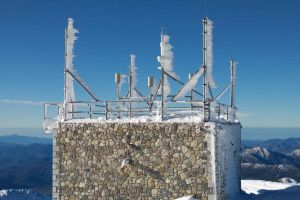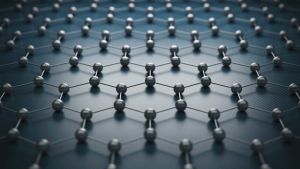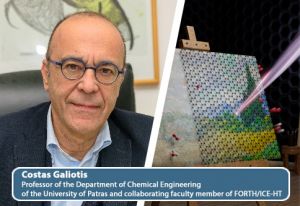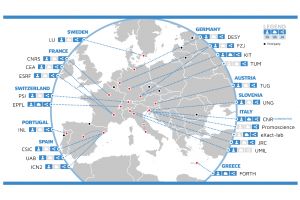Nanoscience, Nanotechnology
Experimental campaign of atmospheric measurements in the framework of the Cloud-AerosoL InteractionS program in the Helmos background TropOsphere (CALISHTO)
The Cloud-AerosoL InteractionS measurement campaign in the Helmos background TropOsphere (CALISHTO) is taking place in the next two months (October-November 2021) in the context of PANACEA infrastructure and the ERC program PyroTRACH.
The incorporation of centimetre-size monolayer graphene in polymer nanolaminate is paving the way for the development of effective electromagnetic interference (EMI) shields
Since its isolation in 2004 by Geim and Novoselov from the University of Manchester (Nobel Prize in Physics in 2010), graphene has been termed as a ‘wonder material’ due to its exceptional properties that have already been exploited in many applications and products.
Atmospheric acidity impacts oceanic ecology
Increased acidity in the atmosphere is disrupting the ecological balance of the oceans, according to new research led by the University of East Anglia (UEA).
The pioneering idea of using graphene for the protection of paintings, paving the way for the development of novel methods in art preservation and restoration, has been published on 1.7.21, in Nature Nanotechnology.
A team of researchers from the Institute of Chemical Engineering Sciences of Foundation for Research and Technology-Hellas (FORTH/ ICE-HT), the Department of Chemical Engineering of the University of Patras, and the Center for Colloid and Surface Science (CSGI) of the University of Florence, led by Professor Costas Galiotis, had the innovative ideato use graphene veils for the protection of paintings against environmental degradation.
IESL/FORTH in the renewed European Research Infrastructure in Nanotechnology
The European Commission has recently decided the continuation of the European Nanotechnology Research Infrastructure NFFA-Europe (2015-2021) by the NFFA-Europe Pilot (NEP, 2021-2025), with a budget of 15M€. NEP constitutes an expanded network of European Nanotechnology research facilities from 10 countries, which have a high impact on the way Nanoscience is promoted in Europe. The Institute of Electronic Structure and Laser (IESL) of FORTH is a founding member of NFFA and acts as the leader of the joint research activities of the consortium.













